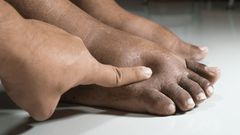Sexual and reproductive health remains a crucial conversation in Nigeria and across West Africa, but misconceptions, lack of resources, and cultural taboos make it difficult for many to access accurate information. The World Health Organization (WHO) describes sexual and reproductive health as a basic human right. For communities in Lagos, Accra, and beyond, clear, stigma-free education can go a long way to empower people—especially women and youth—to make informed health decisions. In partnership with respected health brands including Lovehoney, experts have compiled a candid, judgment-free glossary to address some of the most common and misunderstood aspects of sexual health, tailored for a West African audience.
Whether you’re learning more about your body, exploring relationships, or trying to stay safe, understanding sexual health is foundational to overall well-being and gender equality. Being armed with the right information makes it easier to live confidently and maintain healthy relationships.
A is for Anal Sex
Anal sex involves stimulation of the anus, typically through the insertion of a penis, finger, or a sex toy. In Nigeria and many parts of Africa, discussions around anal sex are often met with silence or discomfort, yet they remain relevant for sexual education and health. If you decide to explore anal sex, experts suggest starting with gentle anal play—this might mean external touch or using lubricated fingers. Because the anus is particularly sensitive, rushing the experience can cause injury. Take time with foreplay, communicate honestly about boundaries, and proceed only with trust and mutual consent.
How to Reduce Risk During Anal Sex
Injuries such as anal fissures or infections, though rare, are possible if care isn’t taken. Here are safe practices recommended by health professionals:
- Lubricant: Use generous amounts of quality anal lubricant to minimize friction and prevent tissue injury.
- Hygiene (Enema): Clean the anus if desired; learn how to perform an enema safely, but space out cleansing and sex by several hours.
- Nail Care: Trim and clean your nails before engaging in any anal play to avoid introducing bacteria or causing scratches.
- Condom Use: Always use condoms to reduce the risk of sexually transmitted infections (STIs). Use latex-safe lube for added comfort.
- Position: Experiment with comfortable positions; steady communication helps ensure safety and enjoyment for both parties.
- Pace: Start slowly, allowing the body time to relax; gradual movement helps avoid microtears or discomfort.
Is Orgasm Possible from Anal Sex?
For some, anal stimulation can lead to intense pleasure or orgasm. Parents and educators in West African societies should understand that for men and people with penises, indirect stimulation of the prostate (“P-spot”) is responsible for this effect. Women and people with vulvas may also find enhanced pleasure, especially when anal sex is paired with clitoral or vaginal stimulation. Open dialogue with partners is key for a positive experience.
B is for Bacterial Vaginosis
Bacterial vaginosis (BV) is a common but frequently misunderstood infection, not classified as an STI but capable of increasing the risk for other infections. BV may produce an unusual, sometimes fishy-smelling discharge, and can be passed between women during sex. Men can carry BV bacteria without experiencing symptoms, potentially passing it on to partners. In Nigeria, where vaginal health is often a taboo subject, destigmatizing conversations about BV can facilitate better health outcomes.
Recognizing BV Symptoms
An estimated half of BV cases are symptomless (NHS). Common signs include:
- Vaginal discharge with a strong, fishy smell, particularly after intercourse.
- A shift to greyish-white, thin, and watery discharge.
Itching and soreness aren’t typical of BV. If you have these, see a healthcare provider, as another cause might be responsible.
What Causes BV?
BV stems from an imbalance of bacteria in the vagina. Although the precise cause remains unclear, several factors can elevate risk:
- Being sexually active
- Changing partners frequently
- Using an intrauterine device (IUD)
- Applying perfumed products in the genital area
Prevention Tips for BV
Avoid chemical-laden soaps and douches, and limit smoking to lower your BV risk. Natural, unscented products are best for intimate hygiene.
C is for Cervical Cap
A cervical cap is a reusable silicone device placed over the cervix before sex to block sperm. For added efficacy, it is recommended to use spermicide. According to Planned Parenthood, the cervical cap is 86% effective for individuals who have never given birth and 71% for those who have.
Are There Side Effects?
The cervical cap contains no hormones and generally has no side effects, though some people may encounter irritation due to spermicide. Given the frequency of sexual activity among young urban professionals in Nigerian cities, some may prefer alternative contraception for comfort and consistency.
D is for Discharge
Vaginal discharge plays a vital role in keeping the vagina clean and healthy. In Nigeria and across West Africa, women’s health is often shrouded in misinformation. It’s normal for the amount, texture, and color of discharge to change throughout the cycle, pregnancy, or menopause. Sudden shifts in color or smell, however, may indicate infection and should be discussed with a healthcare professional.
What Does Normal Discharge Look Like?
- Colour: Clear, off-white, or milky discharges are typical. Yellow, brown, green, or grey may signal an infection.
- Smell: A slight odor is normal; any strong or fishy smell warrants further attention.
- Texture: Discharge may be watery or thicker at different times of the menstrual cycle. Clumping is not always problematic unless combined with other symptoms.
- Volume: Natural variability is expected; sudden changes should not be ignored.
E is for Endometriosis
Endometriosis is a chronic, often painful condition in which tissue similar to the uterine lining grows outside the womb. Nigerian women living with endometriosis—or “endo” as some call it—may face significant diagnostic delays due to limited awareness. Common symptoms include severe menstrual pain and discomfort during or after sex, making open dialogue with healthcare providers and partners essential. While there’s no cure, treatments such as pain medication, hormonal therapy, or surgery help manage the condition and improve quality of life.
It’s important for individuals with endometriosis to communicate openly with partners, try less painful sexual positions, and engage in gentle, non-penetrative activities as desired. Early treatment helps mitigate longer-term complications like infertility.
F is for Fallopian Tube
The fallopian tubes connect the ovaries to the uterus and are key sites for fertilization—where the sperm meets the egg before moving to the womb. Issues with these tubes, such as blockages, are a leading cause of infertility in Nigerian hospitals. According to Dr. Aminat Oladipo, a reproductive health specialist in Lagos, “Prompt diagnosis of fallopian tube problems can increase the chances of successful conception.” Conditions linked to the tubes include ectopic pregnancy, endometriosis, and pelvic inflammatory disease (PID).
How to Keep Fallopian Tubes Healthy
- Practice safe sex to reduce the risk of sexually transmitted infections, which can damage the tubes.
- Regular health checks help detect infections or blockages early.
G is for Genital Warts
Genital warts appear as soft growths on the genitals, perineum, or anus, and are a symptom of certain strains of human papillomavirus (HPV). With an estimated 40 types of HPV affecting the genital area (NYU Langone), awareness and prevention are crucial, especially as HPV can lead to cervical cancer if unchecked.
Who Can Get Genital Warts?
Anyone who is sexually active is at risk, though many remain symptom-free. Condoms provide significant but not flawless protection. Abstaining from sex during outbreaks, plus vaccination and periodic PAP smears (cervical cancer screening), are best practices for prevention.
How Are Genital Warts Diagnosed and Treated?
Doctors typically diagnose by visual inspection. Treatments range from topical solutions to minor surgical removal, but education and prevention remain the best options in Nigeria, where routine screening can be limited by cost or access.
H is for Hepatitis (A-E)
Hepatitis viruses (A through E) affect the liver. Apart from Hepatitis E, these can be spread via sexual contact. Community health campaigns are working to improve vaccination rates in West Africa, where hepatitis remains a public health challenge.
Understanding the Types of Hepatitis
- Hepatitis A: Usually spread through contaminated food or water, but can be transmitted sexually.
- Hepatitis B: More likely contracted through sexual fluids. Chronic infection can cause long-term liver damage.
- Hepatitis C: The most severe, with 75-85% developing chronic conditions. Less often transmitted sexually, but the risk exists.
- Hepatitis D: Only occurs in people already infected with Hepatitis B.
- Hepatitis E: Commonly acquired by eating undercooked meat or shellfish. Can be especially serious for pregnant women.
Vaccines are available for Hepatitis A, B, and E. Public health officials urge regular vaccination, especially for high-risk populations.
I is for IUDs
The intrauterine device (IUD) is a highly effective, long-acting reversable contraceptive popular among Nigerian women for family planning. Inserted by healthcare professionals, these devices boast a 99% effectiveness rate (Planned Parenthood). They can also serve as emergency contraception if inserted up to five days after unprotected sex.
Possible Side Effects of IUDs
- Temporary cramping after insertion
- Spotting or irregular bleeding
- Heavier periods (with some types)
- Risk of thrush or BV
- Less commonly, infections, expulsion, or uterine perforation
Speak to a doctor about any side effects or concerns.
J is for Jism
“Jism” (also called “jizz”) refers informally to semen. While slang, understanding bodily fluids and their role in reproduction or STI transmission is essential knowledge.
K is for Kink
Kink encompasses all consensual sexual behaviors considered outside mainstream norms, like role play or spanking. Open communication and clear consent are crucial. In more conservative communities, these conversations may be rare, but sexual diversity exists in every society. Experts advise discussing boundaries upfront with partners.
L is for Labia Minora
These are the inner “lips” at the vaginal opening, offering protection against infection and dryness. Body positivity campaigns in Nigeria remind women that labia size, shape, and color all vary naturally.
M is for ‘Morning After’ Pill
Emergency contraception, or the “morning after” pill, must be taken within 3 to 5 days after unprotected sex to prevent pregnancy. In many Nigerian cities, this is accessible at selected pharmacies, sexual health clinics, and doctor’s offices. Health activists urge better public awareness to reduce unplanned pregnancies, especially amongst young people.
Where Can You Access Emergency Contraception?
- Sexual health clinics
- Doctor’s surgeries
- Certain pharmacies
N is for Non-binary
Non-binary people don’t identify strictly as male or female. The non-binary community is growing globally and includes those who are gender fluid. In Nigeria, where gender norms are strongly enforced, acceptance and legal protection are ongoing issues. As awareness increases, more people are adopting gender-neutral pronouns (e.g., “they/them”).
O is for Ovulation
Ovulation is when an ovary releases an egg, usually around day 14 of the menstrual cycle. Tracking ovulation helps couples seeking to conceive. Methods include calendar tracking, cervical mucus observation, basal temperature checks, and ovulation predictor kits. “More Nigerian women are taking charge of their fertility using these tracking tools,” says Dr. Ifeoma Eze, a family planning consultant in Abuja.
Why Might Ovulation Stop?
- Breastfeeding
- Hormonal contraception
- Menopause
- Polycystic ovary syndrome (PCOS)
For concerns about infertility, reach out to a trusted medical professional.
P is for Pre-cum
Pre-cum, or pre-ejaculate, is a fluid released before orgasm that can carry sperm. Relying on withdrawal (the “pull-out” method) is unreliable for contraception as pregnancy can still occur.
Q is for Questioning
Questioning refers to exploring or re-examining one’s sexual orientation. Due to family and religious pressures in much of Nigeria and West Africa, this period can be challenging but is a natural part of many people’s journeys.
R is for the Rhythm Method
Also called the calendar method, this approach involves tracking menstruation to predict ovulation and avoid pregnancy. It requires careful, consistent record-keeping over several months. In rural Nigeria, this remains a common family planning approach, though less effective than other methods.
S is for STI Screening
STI screenings check for common infections (chlamydia, gonorrhea, HIV, syphilis) through urine and blood samples. Regular testing helps prevent long-term complications and reduces community spread. In West Africa, stigma and limited laboratory infrastructure can deter some from getting screened, but at-home kits are becoming more accessible.
T is for Thrush
Vaginal thrush is a yeast infection experienced by most women at some point. Symptoms include itching, a thick discharge, and redness. Treatments include antifungal creams or tablets, but preventive measures (wearing cotton underwear, avoiding scented soaps) are especially important in warmer climates where infections can thrive.
- Itching or burning sensation
- Thick, white discharge
- Redness and swelling
- Pain during urination
U is for UTI
Urinary tract infections affect millions worldwide, but African women are especially at risk because of anatomical factors. Symptoms include urgent or painful urination, cloudy urine, and fatigue. Antibiotics are the usual treatment, but prevention includes hydration, proper genital cleaning, urinating after sex, and wearing loose, cotton clothing to reduce moisture buildup.
V is for Vaginal Health
Maintaining good vaginal health involves a combination of personal hygiene, healthy sexual practices, and appropriate underwear choices. Key tips for Nigerian women and girls include cleaning the vulva with water or mild soap (but never douching), avoiding perfumed products, changing underwear regularly (especially during periods or heavy discharge), and grooming pubic hair with care to reduce the risk of irritation or infection.
W is Well-Woman Visits
Annual “well-woman” check-ups, although not widely practiced in every Nigerian community, are vital for early detection and prevention of reproductive health problems. These comprehensive exams screen for conditions ranging from infections and cancers to chronic diseases. Medical staff may ask about family history, lifestyle, and perform physical examinations to monitor overall health. Increased awareness and affordable screening are needed across West Africa to improve women’s health outcomes.
X is for X-rated
In pop culture, “X-rated” content refers to explicit or adult themes, from films to online material. In Nigeria, internet safety advocates warn about the easy access of such content for minors, urging parents and community leaders to foster open conversations about media consumption and boundaries.
Y is Yeast Infection
Yeast infections, typically caused by Candida albicans, result in itching, thick vaginal discharge, and discomfort. While not classified as an STI, they can worsen after antibiotics, pregnancy, diabetes, or frequent sexual activity. Good hygiene, breathable underwear, and balanced use of feminine products help lower infection risks.
- Itchiness and irritation
- Burning during sex or urination
- Redness and swelling
- Clumpy or watery discharge
Preventive tips include choosing loose cotton clothing, avoiding unnecessary douching, and limiting time in wet clothing.
Sexual and reproductive health education, adapted for cultural sensitivities and local realities, is key to healthier, more empowered communities from Lagos to Accra. As societies evolve, fostering open-minded discussion rooted in accurate information can help all Nigerians and West Africans safeguard their health, well-being, and rights.
Do you think our society is open enough about sexual health issues? What can we do to create safer, more informed communities? Drop your thoughts in the comments, and follow us for ongoing health updates tailored to West Africa!
Have a story or experience on sexual health, women’s issues, or anything you feel the community should know? We’d love to share your voice or feature your account—email us at story@nowahalazone.com to submit or sell your story.
You can also reach us for general support at support@nowahalazone.com.
Follow us on Facebook, X (Twitter), and Instagram for more updates, education, and real stories from across Nigeria and Africa.
What’s your view? Let’s spark more open and helpful conversations together!










